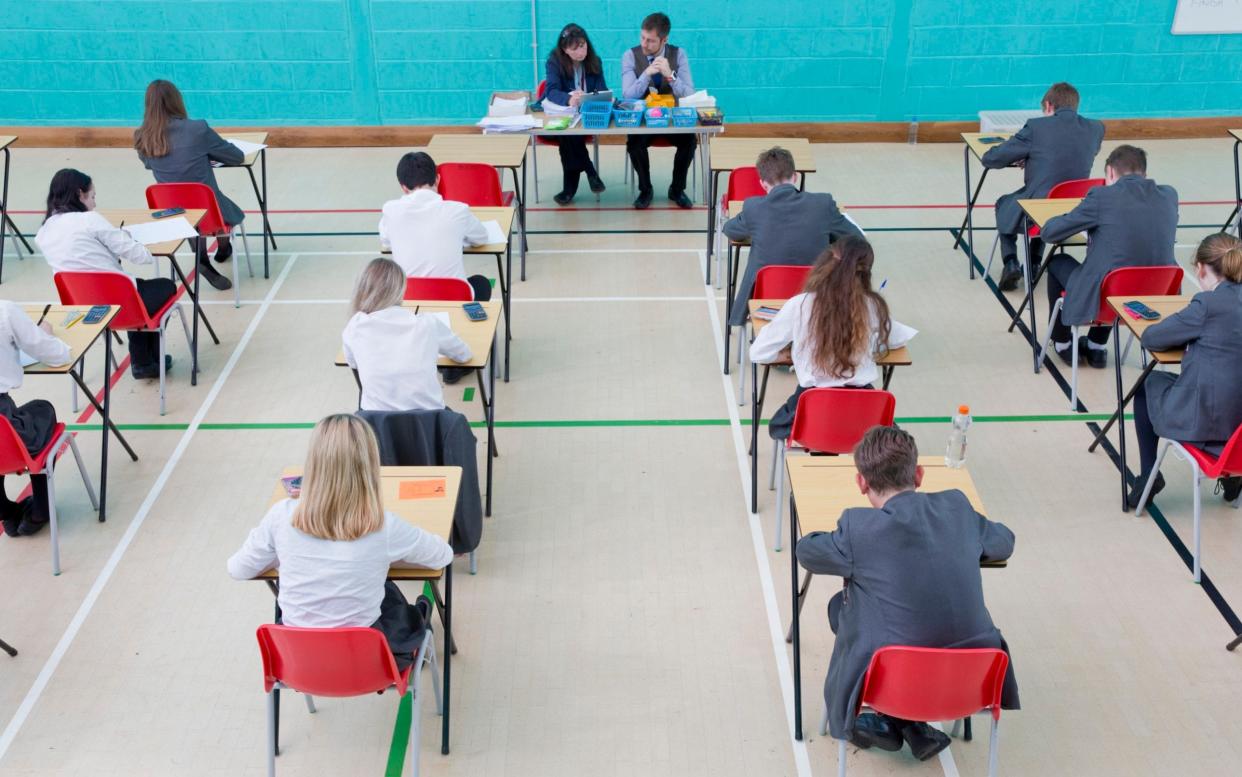Three-grade boost for one in 10 A-level students after algorithm axed

One in 10 A-level students was given a three-grade boost after teachers' predictions replaced a controversial algorithm last summer, an official report has found.
The report, by exam watchdog the Office of Qualifications and Examinations Regulation (Ofqual), found that private and grammar school pupils were the biggest winners from the switch to predicted grades.
Next month, pupils will be awarded teachers' predicted grades for A-levels and GCSEs for the second year in a row after exams were cancelled because of the Covid pandemic.
Ofqual found that, for some students, the grades the algorithm had calculated – based on factors including their own and their school's recent past performance – were "considerably lower" than their teachers' predictions.
Overall, 10.3 per cent of A-level students' results improved by three or more grades when their algorithm-calculated grades were ditched in favour of predictions.
These could be students who went up one grade in each of their three subjects, for example from BBB to AAA, or those who went up more than one grade in a subject, from ABC to AAA.
Ofqual also found that private and grammar school students experienced the biggest boost.
Analysts cited previous research which found that, after controlling for prior attainment and other candidate characteristics, students from private and grammar schools were "more likely to be over-predicted at A-level".
The Ofqual report said: "This was reflected in our analysis where, at both A-level and GCSE, independent centres had amongst the greatest increases in mean grades awarded in 2020, particularly towards the top of the grade distribution.
"There was also some evidence that grammar schools' outcomes increased more than those of mainstream secondaries at GCSE, particularly in the probability of candidates attaining C or above."
Ofqual said that, for A-level results, sixth form colleges tended to predict "relatively lower grades" than other schools, particularly at grade C. This year, schools were asked to submit evidence to exam boards to support their predicted grades.
A study published this week found private school parents were twice as likely to have pressurised teachers over grades.
Almost a quarter – 23 per cent – of teachers at fee-paying schools said they had been approached or pressured by students' families to give higher predictions, compared to just 11 per cent of teachers at state schools in deprived areas.
A poll of over 3,000 teachers, commissioned by the social mobility charity the Sutton Trust, also found that 17 per cent of teachers at state schools in wealthy areas felt pressured over grades.
Geoff Barton, the general secretary of the Association of School and College Leaders, insisted grades would be based on pupils' performance rather than those whose "parents have the sharpest elbows". He said teachers had tried to ensure grades were fair but many had the "additional strain" of pressure from parents.
The Sutton Trust urged universities to give "additional consideration" to students from disadvantaged backgrounds who have narrowly missed their offer grades in light of the disruption to their learning.

 Yahoo News
Yahoo News 
